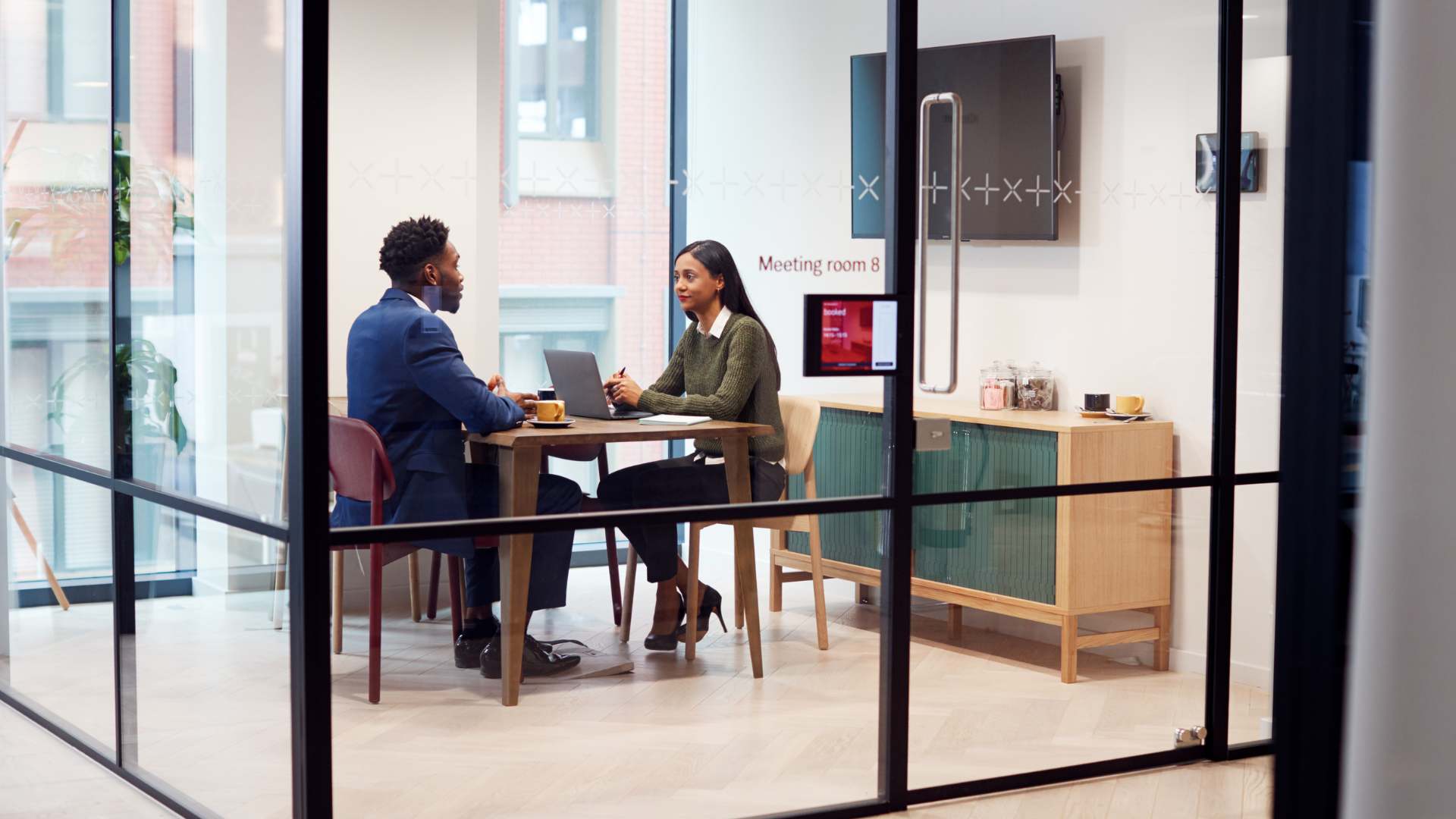The style of interview a hiring manager conducts will depend on what they are interested in assessing during the process. Generally speaking, a hiring manager should advise you what format the interview will take during the invitation process.
Interviews may be carried out by one or multiple team members and can follow a few different formats. Behavioural and competency based interviews are two techniques most commonly used to assess a candidate's ability to carry out the role in question.
Whether you are answering a behavioural or competency based question, using real life stories to back up your answer is always the best approach. It is all very well stating that you can deal with a difficult situation or that you have the ability to lead a team but supporting this with evidence will add credibility and help you persuade the hiring manager that you have the skills which they are looking for.
What is a Behavioural Interview?
A behavioural interview is a type of job interview where the interviewer asks questions designed to elicit specific examples of how the candidate has behaved in past work or life situations. The idea behind a behavioural interview is that past behaviour is the best predictor of future behaviour, so the interviewer asks questions to assess how the candidate has handled situations in the past that are relevant to the position they are interviewing for.
In a behavioural interview, the questions are typically open-ended and start with phrases such as "Tell me about a time when...", "Give me an example of...", or "Describe a situation where...". The interviewer is looking for specific, detailed examples of how the candidate has handled challenges, solved problems, worked with others, and demonstrated key competencies relevant to the position.
For example, a candidate interviewing for a customer service position might be asked to describe a time when they had to deal with a difficult customer and how they resolved the situation. Or a candidate interviewing for a management position might be asked to describe a time when they had to motivate a team to achieve a challenging goal.
The purpose of a behavioural interview is to assess the candidate's skills, experience, and suitability for the position in a more objective and structured way than a traditional interview. By focusing on specific examples of past behaviour, the interviewer can gain a more accurate picture of the candidate's abilities and potential for success in the role.
Typical Behavioural Interview Questions
- Tell me about a time you felt under pressure at work and how you dealt with this.
- Can you give an example of how you’d appease a customer who’s disappointed with the service provided?
- What is your approach to managing disagreements within the workplace?
- Have you ever had to change tactics when delegating tasks?
- How do you interact with co-workers who have a difference in opinion on how to approach a task?
What is a Competency Interview?
A competency interview is a type of job interview that focuses on assessing a candidate's competencies or skills relevant to the job. Unlike traditional interviews, which may focus on a candidate's education or work experience, a competency interview is designed to evaluate the candidate's abilities and behaviours in specific areas that are important for success in the role.
In a competency interview, the interviewer will typically ask questions that relate to specific skills or competencies identified as critical for the position. For example, if the position requires strong problem-solving skills, the interviewer might ask the candidate to describe a complex problem they have solved and the steps they took to reach a solution. Alternatively, if the position requires strong leadership skills, the interviewer might ask the candidate to describe a time when they successfully led a team through a difficult situation.
The goal of a competency interview is to assess the candidate's ability to perform specific tasks or handle certain situations that are relevant to the job. By focusing on specific competencies, the interviewer can gain a more accurate understanding of the candidate's strengths and weaknesses and make a more informed hiring decision.
During a competency interview, it's important for the candidate to provide detailed and specific examples of their skills and behaviours. The candidate should be prepared to discuss their experiences in depth and provide concrete examples of how they have demonstrated the required competencies in past jobs or situations.
Typical Competency Interview Questions
- Describe a situation in which you led a team.
- Tell me about a big decision you've made recently and how you came to make it?
- What is your career biggest achievement?
- Describe a time when you showed integrity and professionalism in the workplace.
- How do you cope with change?
Who is Spencer Clarke Group?
Since 2017, we've been changing the face of recruitment. From our employees, to the way we do business, to the culture within our office, we're determined to make a difference and create a positive impact on everyone around us.
Recruitment to us isn't just about matching candidates and clients; we’re passionate about finding candidates the perfect job which has the ability to boost their salary and standard of living, better their work life balance and improve their mental health.
Similarly, we understand the impact which an experienced and skilled employee can make to a business and we love seeing clients thrive through the hard work of candidates which we have placed with them.
We operate in two sectors:
Private Sector
Public Sector
In eleven specialisms:
Accountancy & Finance
Education & SEND
Construction, Trades & Labour
Healthcare, Social Care & Nursing
Housing
Corporate Functions & Business Support
HR & Workforce Development
IT & Digital
Property & Asset Management
Planning, Development & Regeneration
Highways, Infrastructure & Engineering
If you’re searching for a new role, why not visit our job page to take a look at the latest opportunities? Alternatively, upload your CV and one of our experienced consultants will contact you when a relevant opportunity becomes available.
If you’re struggling to fill a role, why don’t you give us a call on 01772 954200 to see how we can help? One of our consultants will be happy to listen to the challenges which you are facing and advise on the best possible solution for you.




